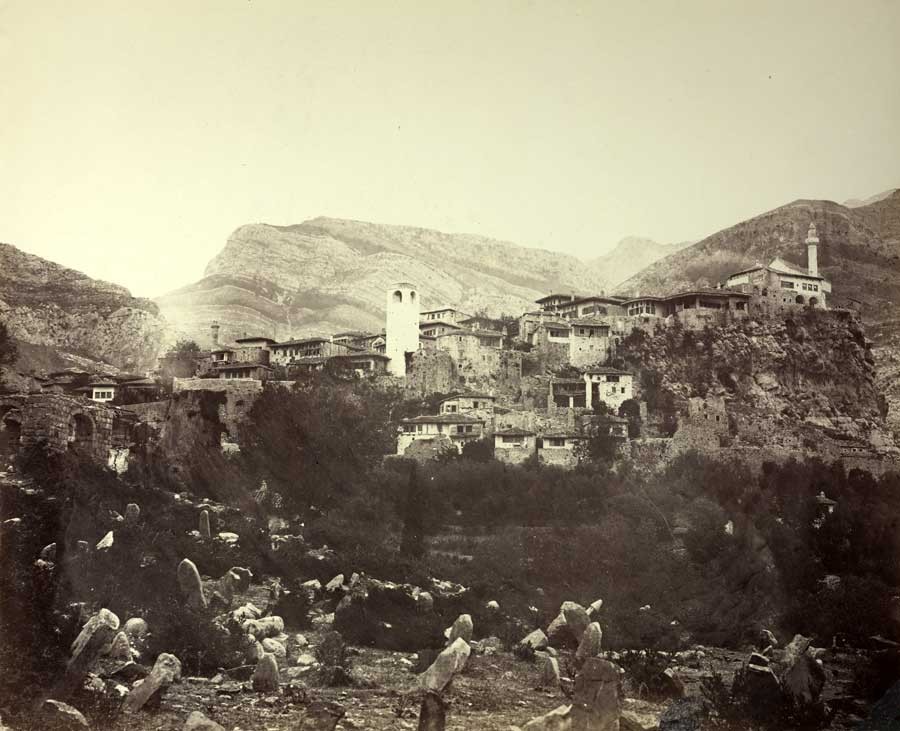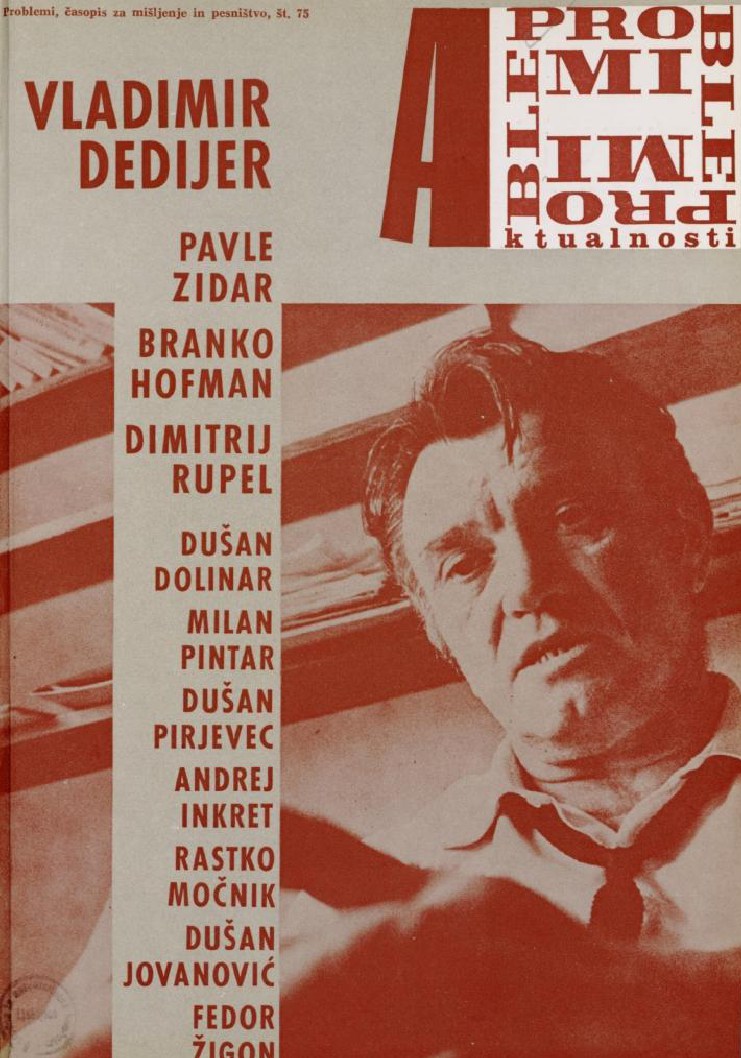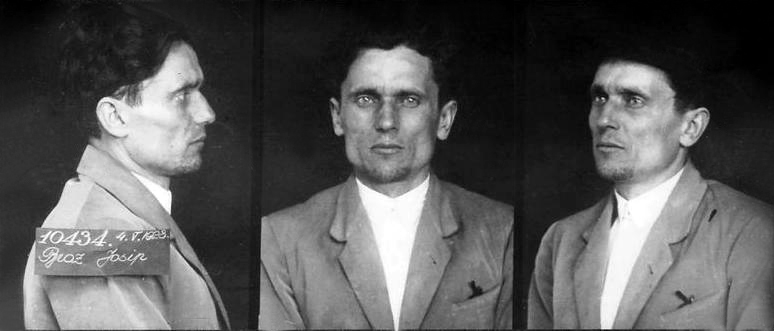|
Milo Bošković
Milo Bošković (Cyrillic: Мило Бошковић; 20 October 1911 – 21 September 1944) was a physician, participant in the National Liberation War and national hero of Yugoslavia. Biography Education He was born on 20 October 1911 in the Montenegrin village of Gornji Brčeli, in Crmnica, near the coastal city and port of Bar. His father Ivo worked in the United States, and Milo stayed in Montenegro with his mother and brothers. He finished elementary school in his hometown, and high school in Cetinje. He studied medicine at the University of Bologna, where he graduated in 1937 with the highest possible grade of 110 of 110. After returning to the country, he served his military service until 1938. He came to Belgrade just before the outbreak of the Second World War. As a doctor, he specialized in parasitology and was employed as an assistant at the Bacteriological Institute of the Faculty of Veterinary Medicine in Belgrade. During 1941, he was a ... [...More Info...] [...Related Items...] OR: [Wikipedia] [Google] [Baidu] |
Bar, Montenegro
Bar (Montenegrin language, Montenegrin: Bar, Бар, , ) is a town and seaport in Coastal Montenegro, Coastal region of Montenegro. It is the capital of the Bar Municipality and a center for tourism. According to the 2023 census, the city proper had 15,868 inhabitants, while the total population of Bar Municipality was 46,171. Name Bar is supposed to be a shortened Slavic variant of ''Antivari''. The name is thought to be derived from the Latin ''Antibarum'' or ''Antibari'', which later in Greek was transformed into ''Antivárion / Antivari'' due to its pronunciation. "Antibari", meaning "opposite Bari", is a name taken because of it is location across the Adriatic Sea from Bari in Italy. Variations are in Italian language, Italian, ''Antivari / Antibari''; in Albanian language, Albanian, ''Tivari'' or ''Tivar''; in Turkish language, Turkish, ''Bar''; in Greek language, Greek, Θηβάριον, ''Thivárion'', Αντιβάριον, ''Antivárion''; in Latin, ''Antibarium''. His ... [...More Info...] [...Related Items...] OR: [Wikipedia] [Google] [Baidu] |
Zagreb
Zagreb ( ) is the capital (political), capital and List of cities and towns in Croatia#List of cities and towns, largest city of Croatia. It is in the Northern Croatia, north of the country, along the Sava river, at the southern slopes of the Medvednica mountain. Zagreb stands near the international border between Croatia and Slovenia at an elevation of approximately above mean sea level, above sea level. At the 2021 census, the city itself had a population of 767,131, while the population of Zagreb metropolitan area is 1,086,528. The oldest settlement in the vicinity of the city was the Roman Andautonia, in today's Šćitarjevo. The historical record of the name "Zagreb" dates from 1134, in reference to the foundation of the settlement at Kaptol, Zagreb, Kaptol in 1094. Zagreb became a free royal city in 1242. In 1851, Janko Kamauf became Zagreb's List of mayors of Zagreb, first mayor. Zagreb has special status as a Administrative divisions of Croatia, Croatian administrative ... [...More Info...] [...Related Items...] OR: [Wikipedia] [Google] [Baidu] |
Socialist Federal Republic Of Yugoslavia
The Socialist Federal Republic of Yugoslavia (commonly abbreviated as SFRY or SFR Yugoslavia), known from 1945 to 1963 as the Federal People's Republic of Yugoslavia, commonly referred to as Socialist Yugoslavia or simply Yugoslavia, was a country in Central Europe, Central and Southeast Europe. It was established in 1945, following World War II, and lasted until 1992, breakup of Yugoslavia, dissolving amid the onset of the Yugoslav Wars. Spanning an area of in the Balkans, Yugoslavia was bordered by the Adriatic Sea and Italy to the west, Austria and Hungarian People's Republic, Hungary to the north, People's Republic of Bulgaria, Bulgaria and Socialist Republic of Romania, Romania to the east, and People's Socialist Republic of Albania, Albania and Greece to the south. It was a One-party state, one-party socialist state and federation governed by the League of Communists of Yugoslavia, and had six constituent republics: Socialist Republic of Bosnia and Herzegovina, Bosnia and Her ... [...More Info...] [...Related Items...] OR: [Wikipedia] [Google] [Baidu] |
Petar Bošković
Petar Bošković (Bar, Montenegro, Brčeli, 9 July 1931 – Belgrade, 14 January 2011) was a Yugoslav and Serbian diplomat. He was an ambassador of the Socialist Federal Republic of Yugoslavia to the Republic of Cyprus. Life and work Distinguished brothers Bošković Petar Boškovic was born on July 9, 1931, in the Montenegrin village of Bar, Montenegro, Brčeli situated near the coastal city and port of Bar.Odlazak Petra Boškovića, Pobjeda, 16. 1.2011 His father Ivo worked in the United States.Petar remained with his mother and brothers in Yugoslavia. Petar’s brother Đuro Bošković (1914–1945) was a lawyer, a revolutionary, a participant in the Yugoslav Partisans, National Liberation struggle and a member of (OZNA) the security agency of Yugoslavia that existed between 1944 and 1952. Đuro became particularly prominent during the World War II battle of Sutjeska when he reported to the military commanding staff that even though they lost two-thirds of the fighters, they cou ... [...More Info...] [...Related Items...] OR: [Wikipedia] [Google] [Baidu] |
Chetnik
The Chetniks,, ; formally the Chetnik Detachments of the Yugoslav Army, and also the Yugoslav Army in the Homeland; and informally colloquially the Ravna Gora Movement, was a Kingdom of Yugoslavia, Yugoslav royalist and Serbian nationalist movement and Guerrilla warfare, guerrilla force in Axis-occupied Yugoslavia. Although it was not a homogeneous movement, it was led by Draža Mihailović. While it was anti-Axis powers, Axis in its long-term goals and engaged in marginal resistance activities for limited periods, it also engaged in tactical or selective Collaborationism, collaboration with Axis forces for almost all of the war. The Chetnik movement adopted a policy of collaboration with regard to the Axis, and engaged in cooperation to one degree or another by both establishing a ''modus vivendi'' and operating as "legalised" auxiliary forces under Axis control. Over a period of time, and in different parts of the country, the movement was progressively drawn into collaborat ... [...More Info...] [...Related Items...] OR: [Wikipedia] [Google] [Baidu] |
Vladimir Dedijer
Vladimir Dedijer ( sr-Cyrl, Владимир Дедијер; 4 February 1914 – 30 November 1990) was a Yugoslav partisan fighter during World War II who became known as a politician, human rights activist, and historian. In the early postwar years, he represented Yugoslavia at the United Nations and was a senior government official. Later, after being at cross purposes with the government, he concentrated on his academic career as a historian. He taught at the University of Belgrade and also served as a visiting professor at several universities in the United States and Europe. He participated in the Russell Tribunal in 1967, reviewing United States forces activities in Vietnam, and in later tribunals. Origins and family Vladimir Dedijer was born to a Serbian family in Belgrade, in the Kingdom of Serbia, which later was absorbed into Yugoslavia. His family originated from Čepelica, Bileća in Bosnia and Herzegovina and were Orthodox Christians. His father, Jevto Dedijer, ... [...More Info...] [...Related Items...] OR: [Wikipedia] [Google] [Baidu] |
Battle Of Sutjeska
Case Black (), also known as the Fifth Enemy Offensive ( sh-Latn, Peta neprijateljska ofanziva) in Yugoslav historiography and often identified with its final phase, the Battle of the Sutjeska ( sh-Latn, Bitka na Sutjesci ) was a joint attack by the Axis taking place from 15 May to 16 June 1943, which aimed to destroy the main Yugoslav Partisan force, near the Sutjeska river in south-eastern Bosnia. The failure of the offensive marked a turning point for Yugoslavia during World War II. It was also the last major German-Italian joint operation against the partisans. The operation immediately followed Case White which had failed in accomplishing the same objectives: to eliminate the central Partisan formations and capture their commander, Josip Broz Tito. Background During the previous operation Weiss, Chetniks fought against Partisans under Italian command. However, even during the operation, negotiations were held between the German and Italian leaders on the disarmament ... [...More Info...] [...Related Items...] OR: [Wikipedia] [Google] [Baidu] |
OZNA
The Department for Protection of the People, commonly known under its Serbo-Croatian acronym as OZNA, was the secret police of Socialist Federal Republic of Yugoslavia, Communist Yugoslavia that existed between 1944 and 1946. Founding The OZNA was founded on May 13, 1944, according to decision of Josip Broz Tito and under the leadership of Aleksandar Ranković (''nom de guerre'' Marko), a top member of the Politburo until his downfall in 1966, and a close associate of Josip Broz Tito. On May 24, 1944, only a day before Operation Rösselsprung (1944), Operation Rösselsprung, Tito signed the Military Courts Regulations (), which in article number 27 stated that the court reaches its decisions whether the accused are guilty or not based on its free evaluation, regardless of the evidence. Based on the investigations performed by the OZNA, the military courts reached their decisions. Function Until the OZNA was established, intelligence and security tasks were carried out by several ... [...More Info...] [...Related Items...] OR: [Wikipedia] [Google] [Baidu] |
Đuro Bošković
Đuro Bošković (Bar, Montenegro, Brčeli, February 6, 1914 – Belgrade, May 2, 1945) was a Yugoslav lawyer, revolutionary, participant of the Yugoslav Partisans, National Liberation struggle and an officer of the Department for People's Protection (OZNA). Bošković became particularly prominent during the World War II battle of Sutjeska when he reported to the military commanding staff that even though they lost two-thirds of the fighters, they could count on them as being in full force. Biography Family Đuro Ivov Bošković was born on February 6, 1914, in the Montenegrin village of Bar, Montenegro, Gornji Brčeli, in Crmnica, near the coastal city and port of Bar, Montenegro, Bar. His father Ivo worked in the United States, and Đuro stayed in Montenegro with his mother and brothers. He had two prominent brothers, Petar Bošković and Milo Bošković. Petar Bošković was a Yugoslav and Serbian diplomat. He was an ambassador of the Socialist Federal Republic of Yugoslavia ... [...More Info...] [...Related Items...] OR: [Wikipedia] [Google] [Baidu] |
Josip Broz Tito
Josip Broz ( sh-Cyrl, Јосип Броз, ; 7 May 1892 – 4 May 1980), commonly known as Tito ( ; , ), was a Yugoslavia, Yugoslav communist revolutionary and politician who served in various positions of national leadership from 1943 until his death in 1980. During World War II, he led the Yugoslav Partisans, often regarded as the most effective Resistance during World War II, resistance movement in German-occupied Europe. Following Yugoslavia's liberation in 1945, he served as its Prime Minister of Yugoslavia, prime minister from 1945 to 1963, and President of Yugoslavia, president from 1953 until his death in 1980. The political ideology and policies promulgated by Tito are known as Titoism. Tito was born to a Croat father and a Slovene mother in Kumrovec in what was then Austria-Hungary. Drafted into military service, he distinguished himself, becoming the youngest sergeant major in the Austro-Hungarian Army of that time. After being seriously wounded and captured by th ... [...More Info...] [...Related Items...] OR: [Wikipedia] [Google] [Baidu] |
Dinko Šakić
Dinko Šakić (; 8 September 1921 – 20 July 2008) was a Croatian Ustaše official, and convicted war criminal, who commanded the Jasenovac concentration camp in the Independent State of Croatia (NDH) from April to November 1944, during World War II. Born in the village of Studenci, Ljubuški, Studenci, near the town of Imotski in what was then the Kingdom of Serbs, Croats and Slovenes, he became a member of the fascist Ustaše at a young age. When the Axis powers occupied the Kingdom of Yugoslavia in April 1941, Šakić, aged 19, joined the administration in Jasenovac. He became the camp's assistant commander the following year, and married Nada Luburić, the half-sister of concentration camp commander Vjekoslav Luburić, Vjekoslav "Maks" Luburić, in 1943. This marriage, as well as his fanatic support for Ustaše leader Ante Pavelić, led to Šakić's appointment as commander of Jasenovac in April 1944. He was charged in the deaths of an estimated 2,000 people who died dur ... [...More Info...] [...Related Items...] OR: [Wikipedia] [Google] [Baidu] |








